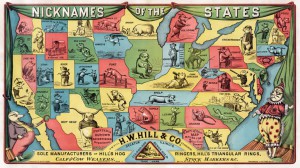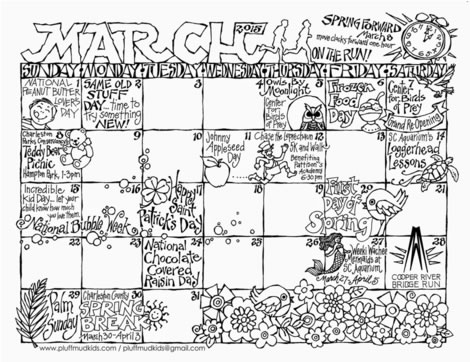AU NATURALE: If you see a nature picture on our pages — turtles, birds, alligators or the beautiful avocado symmetry of a palmetto frond — it’s almost a given that contributing photographer Michael Kaynard has been on the loose. We’ve missed him for several weeks as he’s been nursing an injury and getting back to health. This photo comes from one of Michael’s favorite haunts (but we won’t tell you where it is yet since that’s where this week’s Mystery Photo is from too.) More: Kaynard Photography.
IN THIS EDITION (MARCH 16, 2015 | Number 7.20)
FOCUS: Summerville author explains detoxing your body
BRACK: Colorful nicknames becoming part of the past
PLUFF MUD KIDS: New calendar for kids
GOOD NEWS: Calling all poets, more
IN THE SPOTLIGHT: Titan Termite & Pest Control
FEEDBACK: Four letters on education, drilling, calendar
REVIEW: The Good Luck of Right Now
CALENDAR: Charleston Fashion Week, Walk for Water
PHOTO: Au naturale
MYSTERY PHOTO: Location, location, location
S.C. ENCYCLOPEDIA: Palmetto Pigeon Plant
FOCUS
Summerville author explains detoxing your body
By Jessi Andricks, Special to Charleston Currents
MARCH 16, 2015 — Detoxes are everywhere and quickly becoming the most popular diet trend around. A detox can be a fantastic way to remove toxins from the body, reset your digestive system and replenish your body. They can leave you feeling better than you thought possible and completely renewed. They can also leave you feeling deprived, depleted, and more tired and sluggish than ever.
The key is to knowing what type of detox is worth your time and effort. From juice fasts to master cleanses to clean-eating diets, the options are nearly endless and deciding which one is the best option is just as confusing.
Detoxes and cleanses are used to reboot your system and bring more health into your body. They can last anywhere from 24 hours to 30 days or more, with the range of the detox itself being just as vast. Many detox programs are restrictive and intense, leaving you feeling light-headed, deprived and ready for it to be over. However, a truly effective detox should leave you feeling lighter and energized, not depleted. A good detox will leave you with tools and practices you can adapt into your everyday life, not send you running to the nearest fast food joint for a binge.
Most detox programs include either what you put into your body or how you use it. Some focus on food and eating, while others focus on fitness and heavy-duty workouts. Some are strictly juice cleanses, while others focus on fasting completely. While some offer a combination, many programs leave out the meditation and self-care practices that really help to release stress and tension.
I went through my first detox program to help balance my body after training intensely for a half marathon and leaving a stressful career. I noticed my stress levels were up, I was getting stomach aches every night, and I felt heavy, bloated and tired most of the time. The program helped me discover which foods irritated my digestive tract, gave me time to focus on the good things in my life, not just the stressful ones. It also encouraged me to move my body every day.
 Being an aspiring yoga teacher and health coach, this was easy to do. I ate better, moved with my classes, and finally made time for meditation and reflection. But I knew that for the non-fitness teacher or health coach, knowing what to do could become overwhelming quickly. I realized there was a real lack in the detox market for a truly full-blown cleanse that would guide people through all aspects of food, movement, self-care and meditation. That was when I decided to write my book, Detox 101.
Being an aspiring yoga teacher and health coach, this was easy to do. I ate better, moved with my classes, and finally made time for meditation and reflection. But I knew that for the non-fitness teacher or health coach, knowing what to do could become overwhelming quickly. I realized there was a real lack in the detox market for a truly full-blown cleanse that would guide people through all aspects of food, movement, self-care and meditation. That was when I decided to write my book, Detox 101.
Detox 101 is a 21-day program that focuses on replenishing your system through food, fitness and self-care practices. In Detox 101, you’ll learn the what, why and how of a detox, including what foods to eat, how to move your body, and why meditation and self-care are so important. It breaks down juicing and clean eating, the importance of not over- or under-exercising, and gives you a daily motto to help keep you motivated. Once you start the program, you’ll have 21 days of recipes and meal plans, as well as exercises and workout plans with pictures. It also maps out each day from start to finish, so you know exactly what to expect once you get started. After 21 days of cleansing, you’ll feel restored and renewed, not deprived. You’ll be ready to take move forward in your health and happiness.
Jessi Andricks of Summerville is author of Detox 101: A 21-Day Guide to Cleansing Your Body through Juicing, Exercise, and Healthy Living. For more information, visit JessiAndricks.com. You can also attend an April 4 book-signing at Barnes and Noble, Westwood Plaza, 1812 Sam Rittenberg Blvd., Charleston.
BRACK
Colorful nicknames becoming part of past
By Andy Brack, editor and publisher
MARCH 16, 2015 — Spot. Goat. Boopa. Preacher. Peatsy. Red.
Nicknames, including those of political figures of all stripes, once were commonplace, perhaps a reflection of a society that spent more time talking with each other than emailing, blogging and staring at smartphones.
![]() These days, with what South Carolina novelist Josephine Humphreys calls the “gentrification of South Carolina politics,” political nicknames run a comparatively narrow gamut with the occasional, bland Chips and Treys.
These days, with what South Carolina novelist Josephine Humphreys calls the “gentrification of South Carolina politics,” political nicknames run a comparatively narrow gamut with the occasional, bland Chips and Treys.
From the history books come cool Revolutionary War nicknames like the “Swamp Fox” (Francis Marion) and “The Gamecock” (Thomas Sumter). Still in the headlines almost 100 years after his death is “Pitchfork” Ben Tillman, the white supremacist for whom the 1893 main building at Clemson University is named.
Tillman, a former South Carolina governor and U.S. senator, significantly shaped the state’s 1895 Jim Crow constitution under which the Palmetto State still operates. Students today want the building renamed.
“To those who understood Tillman as he wished to be understood, the nickname ‘Pitchfork Ben’ fit perfectly,” writes Stephen Kantrowitz in Ben Tillman and the Reconstruction of White Supremacy. “The image of the one-eyed farmer poking at his foes before a roaring crowd masks the origins, intentions, and achievements of Tillman’s life and career in just the way that Tillman himself desired.”
In a related manner came the politically-adopted sobriquet of Ellison D. “Cotton Ed” Smith (1864-1944), the U.S. senator from Lee County who reportedly got his nickname after saying, “Cotton is king and white is supreme.”
 Some more recent nicknames are unprintable in family newspapers. But here are some that used to be bandied about a decade or two ago at political gatherings:
Some more recent nicknames are unprintable in family newspapers. But here are some that used to be bandied about a decade or two ago at political gatherings:
- James P. “Spot” Mozingo, a colorful orator from Darlington County who served in the House and Senate. He died in 1972.
- Caldwell “Red” Hinson, a legislator from the Lancaster area who spent 28 years in the House and Senate. Even in his latter days of service, you could spy a hit of red in his hair.
- Charles D. “Pug” Ravenel, a Charleston political newcomer in the 1970s who shook up Democratic politics in campaigns for governor and U.S. Senate. Ravenel, who lives in Charleston today, got his nickname after breaking his nose twice while playing baseball.
- Rita Louise Liddy “Peatsy” Hollings, the politically savvy wife of Ernest F. “Fritz” Hollings. Both nicknames arose in their childhood.
- Ann Yarborough “Tunky” Riley, wife of former Gov. and U.S. Secretary of Education Richard W. “Dick” Riley. Mrs. Riley, who passed away in 2008, was known from childhood by the Gullah word meaning “sweet little baby.”
Also in the General Assembly were John J. “Bubber” Snow of Hemingway, James P. “Preacher” Harrelson of Green Pond, Marion “Son” Kinon of Dillon, T. Allen “Snag” Legare Jr. of Charleston and “Cousin Arthur” Ravenel of Charleston. Other colorful nicknames of state leaders include Frederick Julian “Goat” Leamond of Charleston; F. Mitchell “Cussie” Johnson, a former College of Charleston board chair; and Albert “Fish” Simons Jr., a leading Charleston architect.
In Charleston when a relative mispronounced “beautiful” as “boopa,” lawyer and two-time political candidate Edward K. Pritchard Jr. got a nickname that endures today. Legal eagles still remember the late former state Supreme Court Chief Justice Julius B. Ness of Bamberg better as “Bubba” than his given name. In fact, he may be the only state leader who explained his nickname with another nickname.
“Bubba Ness used to say when people called him an S.O.B. that it stood for ‘Sweet Old Bubba,’” remembers Columbia consultant Mary Green, whose father went to law school with Ness.
Winthrop University political science professor John Holder says nicknames like Bubba, Red, Spot and Goat are going away because the South is losing its cultural uniqueness.
“We’re more like the rest of the country, which in general is a good thing, and less likely to have these kinds of idiosyncrasies,” he said. “I don’t know of politicians anywhere else in the country who have ever had nicknames like Spot and Boopa.”
Nicknames humanize people. It might not be such a bad thing if South Carolina’s leaders got some good — and printable — nicknames for a change.
Andy Brack is editor and publisher of Charleston Currents. Send feedback to: editor@charlestoncurrents.com.
IN THE SPOTLIGHT
Titan Termite & Pest Control
 Charleston Currents is brought to you weekly for free thanks to the generosity of our underwriters. This week in the spotlight is Titan Termite & Pest Control, headquartered in Charleston. It is a full service residential, commercial and industrial pest control company serving South Carolina. It is a third-generation, family-owned company known for outstanding customer service. Each associate is dedicated to the customer and exhibits integrity and respect. Titan’s pest professionals can assist your commercial or residential location with general pest control, termite inspections, termite control, flea control, bed bug extermination, ant control and more. Titan Termite and Pest Control continues to set high standards so that its customers receive the best possible service. Titan’s technicians are knowledgeable of the latest in pest control techniques, which enables the company to customize effective treatment plans for every situation.
Charleston Currents is brought to you weekly for free thanks to the generosity of our underwriters. This week in the spotlight is Titan Termite & Pest Control, headquartered in Charleston. It is a full service residential, commercial and industrial pest control company serving South Carolina. It is a third-generation, family-owned company known for outstanding customer service. Each associate is dedicated to the customer and exhibits integrity and respect. Titan’s pest professionals can assist your commercial or residential location with general pest control, termite inspections, termite control, flea control, bed bug extermination, ant control and more. Titan Termite and Pest Control continues to set high standards so that its customers receive the best possible service. Titan’s technicians are knowledgeable of the latest in pest control techniques, which enables the company to customize effective treatment plans for every situation.
- Free estimate: 888-794-5603.
- Contact Titan online.
PLUFF MUD KIDS
By Leigh Sabine, Pluff Mud Kids
MARCH 16, 2015 — Did you happen to see Pluff Mud Kid’s printable monthly calendar for March?
 Each month we aim to highlight a few of our favorite events for children in the Lowcountry. You can print the calendar, add some of your own ideas, and stick it on the refrigerator to remind you to plan your weekends and day trips ahead of time.
Each month we aim to highlight a few of our favorite events for children in the Lowcountry. You can print the calendar, add some of your own ideas, and stick it on the refrigerator to remind you to plan your weekends and day trips ahead of time.
Look for our calendar each month and talk to your kids about choosing one or two events that sound appealing. Here are a few extra up-and-coming events:
- Click here for downloadable PDF
Extra, Extra! Consider these events too:
- The Big Easter Egg Hunt offered by Mount Pleasant Recreation Department at Alhambra Hall this Wednesday, March 18, 2015, at 11 a.m. for children ages 6 and under. This is a free event.
- Sol Surfers camps are back again soon at Folly Beach for children learning to surf. Study the schedule in this link to learn more and plan your calendar.
GOOD NEWS
Calling all poets
You’ve got two weeks left to submit a Romantic-style poem to win prizes totaling more than $2,000 in a contest by Magnolia Plantation and Gardens to capture the attraction as an idyllic “garden of romance.”
 Magnolia, America’s last large-scale romantic-style garden, has recruited a panel of judges who will select the best poets who emulate the sensibility of romantic poets, stir the emotions and celebrate the natural world. Entries will be judged in adult and young adult divisions.
Magnolia, America’s last large-scale romantic-style garden, has recruited a panel of judges who will select the best poets who emulate the sensibility of romantic poets, stir the emotions and celebrate the natural world. Entries will be judged in adult and young adult divisions.
The Rev. John Grimké Drayton is credited with adopting a romantic style of gardening at Magnolia after visiting Europe in the 1800s as the Romantic Movement swept Europe and America. In addition to garden design, the Romantic Movement touched many aspects of European and American society and inspired poetry.
The poems for the contest should emulate the style of poets William Wordsworth, Ashley Tennyson and Percy Bysshe Shelley. A Wordsworth quote inscribed on a small sign at Magnolia’s entrance reads: “Come forth into the light of things, let nature be your teacher.”
March 31 is the deadline to enter. Winners will be announced in April.
In the adult division, judges will award $500 for first place, $300 for second place, $200 for third place and $50 to five poets in the honorable mention category. A poem should not exceed 30 lines. Judges will only consider poems in the adult division that follow the romantic style and have the gardens at Magnolia as its theme.
In the young adult division — ages 12 to 17 — the judges will award an iPad for first place, $200 for second place, $100 for third place and an annual family membership to Magnolia to five poets in the honorable mention category. Poems in the young adult division can follow any style and must have the gardens at Magnolia as its theme. More information.
Also in recent good news:
- Farmers market. Daniel Island will continue to have its weekly Thursday farmers market starting May 7 on Seven Farms Drive in front of the Family Circle Tennis Center.
The weekly market is held each Thursday for three hours starting at 3:30 p.m. The market will continue weekly through the end of August. The market’s regional farmers and vendors will represent a variety of fresh produce, seafood and prepared foods, and a number of artisan vendors will offer jewelry, crafts and more. Each week, a different food truck or restaurant will offer additional dinner and prepared food options.
- No drilling. The city of Folly Beach last week unanimously passed a resolution opposing offshore drilling and the use of seismic airguns to search for oil and gas deposits off the coast. Folly Beach followed Edisto Island, Beaufort, Port Royal and Isle of Palm’s lead becoming the fifth community in South Carolina to formerly pass a resolution opposing offshore drilling and seismic blasting, and the 37th coastal community to publically oppose or voice concern with seismic airgun use.
- Tips of the hat. Two tips of the hat this week:
Nathalie Dupree. The Southern chef and food writer extraordinaire is among five inductees this year to the Who’s Who of Food and Beverage in America as announced last week by the James Beard Foundation.
Author of 14 cookbooks and host of more than 300 cooking shows, Dupree has won three James Beard awards and other honors. She and her husband, historian Jack Bass, life in Charleston.
Charleston Mayor Joe Riley. The mayor last week was honored by receiving the Krause Center for Leadership Award, one of The Citadel’s most prestigious honors. It is presented annually to a graduate who exemplifies the highest ideals of leadership through integrity and service to others.
“As we lead, we must have a clear, moral, ethical understanding of where we are seeking to go and why,” said Riley. “A leader must always be listening.”
After Riley steps down from being mayor after 40 years later this year, he’ll return to The Citadel to teach and write.
FEEDBACK
Letters on schools, drilling, calendar
Agrees on schools, offshore drilling
To the editor:
I agree on both points. [Brack: Two dumb ideas: Splitting the school di![]() strict, offshore drilling].
strict, offshore drilling].
Public schools in South Carolina should be financed to allow students to attend the very best schools in the nation and this requires great commitment by taxpayers in South Carolina. Offshore drilling is a poor idea as there is a great chance of spillage which damages the ecosystem.
– Jere Newman, Alpharetta, Ga.
Your dumb ideas aren’t dumb after all
To the editor:
Your two dumb ideas are not so dumb after all. Smaller schools and smaller districts have remarkably better achievement records than do bigger ones. If the district is small enough where the superintendent is but one level removed from the teachers and students teaching and learning improve. When the superintendent knows the student, their siblings that may have gone before and the family, when the superintendent hires and fires the staff, the entire district is more responsive to achievement than when the superintendent presides over a bureaucracy with assistants standing between he/she and the students. I bet you cannot name one high-achieving large school district. The fact this idea came from Ms. Moffly taints it.
South Carolina has few natural resources that support jobs. You are right the beaches are one. If it should turn out that a useful deposit of oil and gas lay offshore, than we should go after it as safely as possible. The jobs, income and wealth, that would gush lays the foundation for long term stable work, men with jobs that women would want to marry, families with both parents to raise their children, children with significantly better outcomes. Why should Florida, Louisiana, Texas, California and North Dakota reap all these benefits alone? We need more jobs for Sandlappers. Oil and gas could supply them.
– Frank Leister, Charleston, S.C.
Didn’t move to Charleston for it to become New York
To the editor: I came to Charleston from New York City some 19 years ago. I am a New Yorker through and through and I love the hustle bustle of that big city. However, I did not move to Charleston to see it turn into a New York. I came here because this city is filled with history, elegance and people who greet you when they walk past you. What will over 600 more people and 750 more cars do to the lovely neighborhood that we have all enjoyed quietly for so many years? It will change its character completely. The city worked hard to change Ashley Avenue into a two-lane road. Why? To promote a quieter traffic pattern on the avenue. Have the powers that be changed their minds? Do they want people to stay awake at night listening to 750 cars go by? I can remember being woken up several times each night by the noise of cars and trucks when Ashley was only one way. A 24-hour grocery store sounds convenient, but do we really want Charleston to be a city that is awake 24 hours every day? Because please remember, if others are awake, you might be awoken to their noise as well. So many of us are runners, walkers and bikers and we do it downtown because it can be so quiet and so pleasant. Please do not ruin this quiet section of Charleston by allowing the Beach Company to build such an enormous monstrosity.
– Katherine Roberts, Charleston, S.C.
Calendar offers great happenings
To the editor:
Thanks for always being the first to include announcements for other…somewhat off beat…great happenings in town.
Case in point: My husband and I just went to the Concert put on by the Navy Band. Without exaggeration, it was one of the best of ANY concerts we have EVER seen. The talent and musical selections were over the top outstanding.
Charleston Currents had me hooked at the first newsletter, which I think WAS the first newsletter. My appreciation just keeps growing.
– Archie Burkel, James Island, S.C.
If you have an opinion on something we’ve offered or on a subject related to the Lowcountry, please send your letters of 150 words or less to: editor@charlestoncurrents.com | Our feedback policy.
REVIEW
The Good Luck of Right Now, by Matthew Quick
![]() Better known as the author of the Silver Linings Playbook, Matthew Quick has followed it up with an excellent and quirky story centered on Bartholomew Neil.
Better known as the author of the Silver Linings Playbook, Matthew Quick has followed it up with an excellent and quirky story centered on Bartholomew Neil.
For all of his 39 years, Bartholomew has lived with his mother, never knowing a father other than the parish priest, Father McNamee. When his mother dies of cancer, Bartholomew is forced to confront life on his own. Going through his mother’s things after her death, he finds a form letter written to her several years ago by Richard Gere referencing Tibet and the summer Olympics. This sets him on a path of self-reflection that is expressed through letters he writes to Gere. The letters are funny, insightful and full of wisdom. Along his journey, Bartholomew meets Elizabeth, the “Girlbrarian” (girl librarian) of his dreams and her foul mouthed brother Max. As they travel to Canada with Father McNamee to supposedly meet Bartholomew’s long lost father and see “Cat Parliament”, they each try to come to terms with the pain in their past and how they can move forward together.
Although Quick explores various aspects of mental illness, the story is never morose. The reader will find himself uplifted by the courage and determination of Bartholomew and his friends. Highly recommended.
– Mike Nelson, Mount Pleasant Library
 Find this and similar titles from Charleston County Public Library. This item available as a book. To learn more or place a hold, visit www.ccpl.org or call 843-805-6930.
Find this and similar titles from Charleston County Public Library. This item available as a book. To learn more or place a hold, visit www.ccpl.org or call 843-805-6930.
CALENDAR
This week: Charleston Fashion Week, Walk for Water, more
(NEW) Charleston Fashion Week: March 17-21, Marion Square, Charleston. With new fashion styles and five runway shows over the five-day event, there’s something for every fashionista at the annual event for emerging designers. More.
 Refugee All Stars: 5 p.m., March 19, Magnolia Plantation and Gardens. Sierra Leone’s Refugee All Stars will offer a benefit concert to raise money for Doctors Without Borders, a non-governmental organization working to combat the spread of the Ebola virus which killed more than 3,300 in the west African nation. Tickets are $15. More.
Refugee All Stars: 5 p.m., March 19, Magnolia Plantation and Gardens. Sierra Leone’s Refugee All Stars will offer a benefit concert to raise money for Doctors Without Borders, a non-governmental organization working to combat the spread of the Ebola virus which killed more than 3,300 in the west African nation. Tickets are $15. More.
Art submissions sought: Due March 21. The 3rd annual Spring Jam Music Fest is offering an Art Walk Exhibition of 10 artists chosen by festival contributors. The art will be displayed during the all-day April 18 show at The Grove at Patriot’s Point in Mount Pleasant. Learn more here: www.springjammusicfest.com
Walk for Water: 9 a.m., March 21, Brittlebank Park, Charleston. The 9th annual Walk for Water by Water Missions International to spread awareness about the global water crisis and raise money has one caveat: No running. The 3.5 mile walk costs $20 per adult. More can be found here.
(NEW) Cooper River Bridge Run: March 28. The 38th annual 10K run/walk from Mount Pleasant to downtown Charleston draws tens of thousands of people. You must be registered to participate. Participants are limited to 38,500. Register.
Lowcountry Cajun Festival: Noon to 6 p.m., March 29, James Island County Park, James Island. A full day of tunes, food and activities will ensue as the area celebrates all things Cajun. $15 for 13 and up. More.
(NEW) Russian relations: 6 p.m., April 1, Citadel Alumni Center, Charleston. Former U.S. Ambassador to Russia James F. Collins will speak on “U.S. relations with Russia and Eurasia” at an event held by the World Affairs Council of Charleston. More info.
Hats On at the Farmers Market: 10:30 a.m. to noon, April 4, Marion Square, Charleston. The Hat Ladies will celebrate opening day of the market and wish everyone at “HaTpy Easter.” More.
(NEW) Easter Sunrise Service: 6:30 a.m., April 5, Magnolia Plantation and Gardens, Charleston. Old St. Andrew’s Parish Church and St. Andrew’s Mission Church will gather for an Easter Sunrise Service at Magnolia Plantation and Gardens on the banks of the Ashley River. Parking and admission are free. More: Follow #easteratmagnolia on Twitter.
Art on Paper: Through April 5, 2015. While the Gibbes Museum of Art is renovating its space through next year, its third annual Art on Paper exhibit will continue — just in a different location. This year, the exhibition of works on paper will come from six local galleries and be featured at The Vendue, Charleston’s art hotel at 26 Venue Range, Charleston. An opening reception is 5 p.m. to 8 p.m., Feb. 6, at the hotel
(NEW) East Coast Paddlesports: April 17-19, James Island County Park. The 25th annual event is one of the nation’s premier showcases of canoeing, kayaking and stand-up paddleboarding. Full event schedule is online.
Fashion Flashback: Through May 10, 2015, 360 Meeting St., Charleston. The Charleston Museum will offer a new fashion exhibition, “Fashion Flashback, 1920s-1960s: Five Decades of Style that Changed America” in its Historic Textiles Gallery. A light-hearted look at 50 years of fashion, viewers will enjoy exploring clothing styles from the swinging 1920s to the hip 1960s. Learn more here.
Natural history exhibit: Through Aug. 10, 2015. “From Land to Sea: 35 Million Years of Whale Evolution” will be featured in The Charleston Museum’s lobby gallery with displays of whale fossils from millions of years ago. There’s limited availability for an overview by Natural History Curator Matthew Gibson on opening night. Learn more.
Bird walks: 8:30 a.m. to noon, every Wednesday and Saturday. This is the time of year that a great variety of migrating birds fly through the Lowcountry so what better time to take part in one of the regular early morning bird walks at Caw Caw Interpretive Center in Ravenel. Pre-registration is suggested. Cost is $5. Walks also are conducted on James Island and Folly Beach. Learn more online.
If you have an event to list on our calendar, please send it to editor@charlestoncurrents.com for consideration. The calendar is updated weekly on Mondays.
MYSTERY PHOTO
Location, location, location
CLUE: If you’ve been to this area attraction, you would have seen alligators and turtles coexisting (seemingly peacefully). Where is it? Send your guess to editor@charlestoncurrents.com and make sure to include your name and hometown.
 “What a beautiful and marvelous restoration,” writes Ron Byrd of Charleston about last week’s overseas mystery photograph. He and several others correctly guessed it to be from Ephesus, the ancient Greek city near the coast of Ionia in present-day Turkey. The city, an archaeological playground, contains the largest collection of Roman ruins in the eastern Mediterranean. An important early center for Christianity, Ephesus is thought to be the location from which St. Paul wrote his first epistle to Corinthians. He later wrote to Ephesians while imprisoned in Rome in what became a New Testament epistle.
“What a beautiful and marvelous restoration,” writes Ron Byrd of Charleston about last week’s overseas mystery photograph. He and several others correctly guessed it to be from Ephesus, the ancient Greek city near the coast of Ionia in present-day Turkey. The city, an archaeological playground, contains the largest collection of Roman ruins in the eastern Mediterranean. An important early center for Christianity, Ephesus is thought to be the location from which St. Paul wrote his first epistle to Corinthians. He later wrote to Ephesians while imprisoned in Rome in what became a New Testament epistle.
Georgia Meagher of Charleston wrote, “It is Efes/Ephesus on a crowded day (maybe with cruise ships having just unloaded– also a problem there!), looking towards the Library. Despite cruise glut on that section of the Turkish “Turquoise Coast,” it is an amazing site anyone would enjoy.”
Judy Carberry of Charleston added that the theater at the site, one of the early centers of civilization, features “acoustics that do not require a microphone to hear from the stage to the top of the seating is still in use.”
Chris Brooks of Mount Pleasant won points with his joking guess of “Nineveh. Destroyed by ISIS.”
S.C. ENCYCLOPEDIA
Palmetto Pigeon Plant
While serving as an infantry captain during World War I, the Sumter attorney Wendell M. Levi set up the Pigeon Section of the U.S. Army Signal Corps, having had experience raising homing pigeons as a hobby. Harold Moïse, an air force pilot and a graduate civil engineer with building expertise, shared Levi’s interest in pigeons. In 1923, the two men founded the Palmetto Pigeon Plant on 13 acres of farmland in Sumter County and recruited state senator Davis Moïse to be vice president of the firm.
 Palmetto’s original breeding stock came from the pigeons Levi raised for the army. The plant gradually expanded to become America’s largest squab producer and the sole supplier of pigeons for use in medical and dietary research. Squabs—young pigeons that have not yet flown—are considered haute cuisine in many parts of the world. Farm-raised or wild, pigeons were common fare in Carolina until fifty years ago. Besides squabs, the Sumter plant also raised and processed poussins (young chickens) and quail, and bought partridges, rabbits, and additional squabs from growers around the state.
Palmetto’s original breeding stock came from the pigeons Levi raised for the army. The plant gradually expanded to become America’s largest squab producer and the sole supplier of pigeons for use in medical and dietary research. Squabs—young pigeons that have not yet flown—are considered haute cuisine in many parts of the world. Farm-raised or wild, pigeons were common fare in Carolina until fifty years ago. Besides squabs, the Sumter plant also raised and processed poussins (young chickens) and quail, and bought partridges, rabbits, and additional squabs from growers around the state.
Palmetto Pigeon Plant was operated by Levi and Moïse family members until 1990, when Anthony Barwick, a Pineville native and recent graduate in poultry science at Clemson University, became manager. In 1997 Barwick purchased the Moïse family stock and became president and CEO of the company. Wendell M. Levi, Jr., served as secretary-treasurer.
A $4 million business with sixty employees in 2002, Palmetto Pigeon reached a level of production its founders could not have imagined. The plant’s 20,000 pairs of pigeons produced an average of 7,000 squabs a week. Also, 230,000 poussins and 80,000 black chickens were shipped yearly to brokers in New Orleans, New York, Houston, Dallas, Chicago, Denver, Los Angeles, and San Francisco and distributed to restaurants, retailers, retail groceries, airlines, and cruise ships. By the early twenty-first century consumers worldwide could buy Palmetto poussins and squabs through the prestigious distributor D’Artagnan.
– Excerpted from the entry by Dale Rosengarten. To read more about this or 2,000 other entries about South Carolina, check out The South Carolina Encyclopedia by USC Press. (Information used by permission.)
OUR UNDERWRITERS
Charleston Currents is an underwriter-supported weekly online journal of good news about the Charleston area and Lowcountry of South Carolina.
To learn more about how your organization or business can benefit, click here to contact us. Or give us a holler on the phone at: 843.670.3996.
SUBSCRIBE FOR FREE
Subscriptions to Charleston Currents are free.
- Click here to subscribe.
- Unsubscribe. We don’t want to lose you as a reader of Charleston Currents, but if you must depart, please click here.







 We Can Do Better, South Carolina!
We Can Do Better, South Carolina!
























